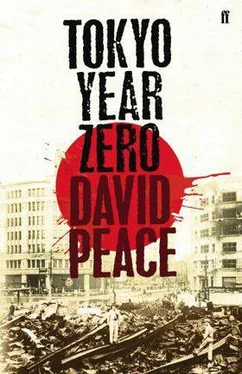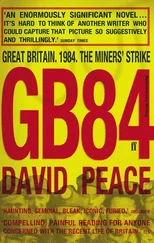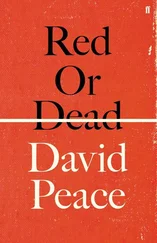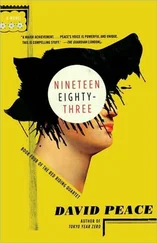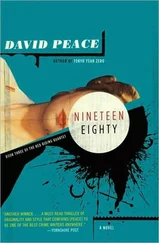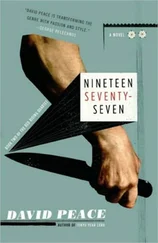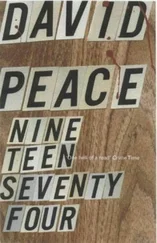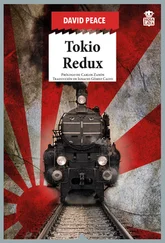Everyone talking now about the one million unclaimed ashes of the war dead, the four million repatriated soldiers and civilians, many bearing the bones and ashes of their comrades and kin in small white boxes around their necks, the million more yet to come –
‘To live lives as broken jewels, not common clay…’
Everyone talking then about the piss and the shit in the rivers, the cholera and the typhus, the train disasters and the union demonstrations, the strike slogans on the sides of the trains –
‘I don’t feel free. I don’t feel I have rights…’
Talking about the GI who raped and sodomized a thirteen-year-old girl, the two other Victors who kidnapped and raped a girl on her way home from a flower-arranging class, talking about the Japanese man who attacked and beat up two GIs in Kamata –
‘There was spirit in the war, stimulation…’
Everyone talking about the minutes that feel like hours. The hours that feel like days. The days that feel like weeks. The weeks that feel like months. The months that feel like years –
This year that has felt like a decade –
‘For now there is only monotony…’
Talking about purges. Talking about trials. Talking about all our trials; to work, to eat. Talking about food. Talking about food. Talking about food, food, food, food, food, food, food, food –
In whispers. In screams. In whispers. In screams –
If you’ve never been defeated, never lost –
If you’ve never been beaten before –
Then you don’t know the pain –
The pain of surrender –
Of occupation …
In whispers, in screams, this is how the Losers talk –
Their chests constricted and their fists balled –
Their knees bleeding and backs broken –
By the fall …
This is how the Losers talk –
To whisper, to scream –
‘We are the survivors. We are the lucky ones.’
*
Back at Atago on the second floor, the second trunk has been opened, the blankets distributed, but this borrowed room is an oven, another furnace, and the stench of sweat and the whine of mosquitoes is unbearable. From across the hallway, from the other room, drift the low voices of the First Team singing their drunken lullabies –
‘Red apple to my lips, blue sky silently watching…’
But they are soon asleep in here, in their chairs or under their desks, snoring and farting, all except Detective Fujita –
The one empty chair. The empty desk …
I get up from my own chair and tiptoe as quietly as I can over the bodies. I open the door. I go down the corridor. Down the back stairs. Out of the back door –
She haunts me …
I start to run, to run through the night, the black and starless night, the hot and humid, damp and dark cloth hanging down –
Down to Yuki.
*
In the half-light of her dim lamps, in the three glass panels of her vanity mirror, she puts her hand to her hair and says, ‘You had just bought a packet of cigarettes at the corner shop when a man ran past shouting, It’s going to rain! It’s going to rain! Old women in their aprons and young children with their toys scurried indoors as a gust of wind blew a reed blind to the ground and newspapers skated like ghosts down the street. Then came the flash of lightning. The clap of thunder. The great drops of rain. But you did not run. You finished your cigarette and you opened your umbrella. And that was when I first saw you, standing beneath your umbrella, when I first called out to you, as I was leaving the hairdresser’s shop, do you remember?’
I don’t want to remember. I don’t want to remember …
‘May I walk with you?’ she’d said. ‘Just over there?’
Her white neck beneath my dark umbrella, her high chignon just freshly dressed, tied up in long silver threads, I remember –
Shipped home from China, discharged from hospital …
‘Don’t worry about me,’ I said. ‘Take the umbrella…’
‘You don’t mind?’ she smiled. ‘Just over to there…’
My umbrella in her right hand, she hitches up the skirt of her kimono with her left and then turns back to ask –
‘Does this umbrella become me?’
In the half-light, I can’t forget …
I itch and I scratch. Gari-gari …
In the half-light. Thinking about my wife. In the half-light –
I am sorry. I am sorry. I am sorry. I am sorry. I am sorry …
Thinking of my children. In the half-light. Her back to me –
I am sorry. I am sorry. I am sorry. I am sorry …
In the half-light. Her face to the wall. In the half-light –
I am sorry. I am sorry. I am sorry …
To the paper. In the half-light. To the stains –
I am sorry. I am sorry …
In the half-light, the half-things –
I am sorry …
Half-lives, all gone.
Tokyo, 90°, fine
I itch and I scratch. Gari-gari . I have not slept again. I have not closed my eyes. My eyes tired and sore. The early morning sun coming through the window now, illuminating the dust and the stains of her room, the sound of the hammering trailing in with the light –
Ton-ton. Ton-ton. Ton-ton. Ton-ton. Ton-ton …
I sit up on the futon. I look at my watch –
Chiku-taku. Chiku-taku . I am late –
Idiot! Idiot! Idiot! Idiot! Idiot!
I get up from the futon. I itch and I scratch. Gari-gari . I put on my shirt and my trousers. Gari-gari . I go over to the genkan. Gari-gari . I lace up my boots. Gari-gari …
I curse. I curse. I curse …
I turn to say goodbye –
But she does not move, her back to the door, her face to the wall, to the paper, the stains –
I curse myself …
I close her door and I run down the corridor. Down the stairs and out the building. Out of the shadows, into the light. The light so bright this morning, the shadows so dark, bleaching and staining the city in whites and blacks. The white concrete hulks, the black empty windows. The white sidewalks and roads, the black telegraph poles and trees. The white sheets of metal, the black mountains of rubble. The white leaves, the black weeds. The white eyes and the black skin of the Losers, the white stars and the black uniforms of the Victors –
Ton-ton. Ton-ton. Ton-ton. Ton-ton. Ton-ton …
No colours today. No colours on this moon.
*
Detective Fujita is at his borrowed desk in our borrowed room. Fujita does not look up . Ishida is pouring the tea. Fujita is going through his jacket pockets . Nishi and Kimura are repairing their notebooks, rolling up thin pieces of waste paper into tight threads to bind together the coarse rough paper on which they take their notes. Fujita takes an envelope out of his inside jacket pocket . The others waking up, yawning and stretching, coughing and scratching. Fujita has not slept . The windows are open but the room is still hot and stinks of stale breath and sweat. Fujita glances at his watch . They drink their tea and start to grumble. Fujita writes a name on the front of the envelope . They want cigarettes but the next ration is not until Monday and today is Saturday. Fujita puts the envelope back in his inside jacket pocket . They want breakfast but the next meal will be cold zōsui again. Now he looks up . Detective Fujita looks up at me –
I wait for him to speak but he says nothing. Now I stand up at my desk. I bow to everyone and I say, ‘Good morning, Room #2.’
Читать дальше
